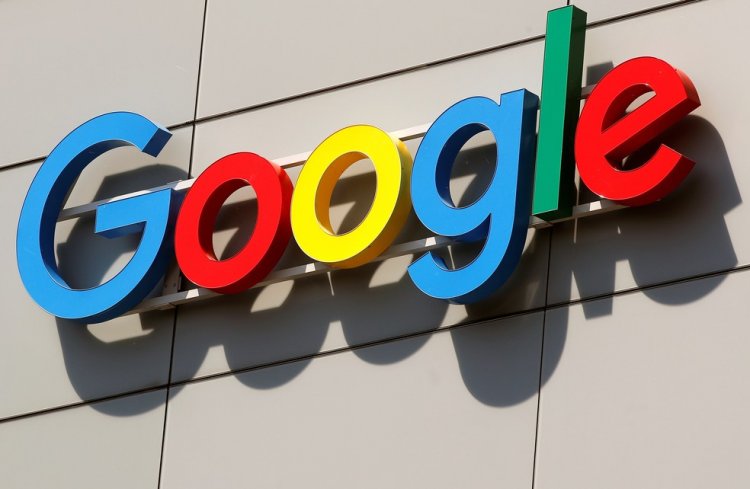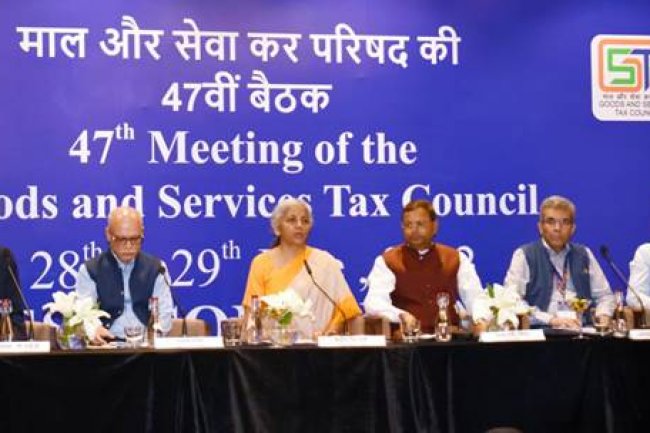Due to anti-competitive behaviour in the mobile Android market, the Competition Commission of India has fined Google Rs. 1337.76 crore.
In addition to issuing a cease and desist order, the Competition Commission of India (Commission) has fined Google a total of Rs. 1,337.76 crore for abusing its dominant position in numerous markets within the Android Mobile device ecosystem. The CCI also gave Google a deadline by which it must alter its behaviour.

In order for applications (apps) and programmes to be executed on intelligent mobile devices, an operating system (OS) is required. Google purchased Android in 2005, making it one of the mobile operating systems that the company offers. In this particular case, the CCI looked at numerous business methods employed by Google in relation to the licencing of the Android mobile operating system as well as a variety of Google's in-house developed mobile applications (e.g. Play Store, Google Search, Google Chrome, YouTube, etc.).
In order to accomplish this, the CCI identified the five markets that are most pertinent to the current situation as follows:
The market for smart mobile operating systems that can be licenced in India
Market for app store for Android smart mobile OS in India
The Indian market for general web search services
India's market for mobile web browsers that aren't platform or operating system specific
India's market for internet video hosting platforms (OVHPs).
During the course of the investigation, Google presented evidence and arguments on the competitive challenges posed by Apple. In order to get a better understanding of the level of competition that exists between Google's Android ecosystem and Apple's iOS ecosystem, the CCI took note of the differences in the two companies' business models, which affect the incentives that are fundamental to the making of business decisions. Apple's revenue is mostly derived from a smart device ecosystem that is vertically integrated. This ecosystem is centred on the selling of high-end smart devices that are equipped with cutting-edge software components. While it was discovered that the ultimate goal of Google's business is to increase the number of users on its platforms so that these users will engage with Google's revenue-generating service, which is online search and has a direct impact on Google's ability to sell online advertising services, the opposite was found to be true for Apple.
In addition, the CCI observed that demand for app stores comes from three distinct groups of end users. These groups are (a) smart device OEMs, who want to install an app store to make their smart devices commercially viable and marketable; (b) app developers, who want to offer their services to the end users; and (c) end users, who wish to access app stores to access content or avail other services. The Commission looked at the possibility of substitutability between Google's Play Store for Android OS and Apple's App Store for iOS from the point of view of all three demand constituents and concluded that there is no possibility of substitutability between Google's Play Store and Apple's App Store. The Commission's findings can be found in the following sentence. When it comes to picking which device to purchase, there is a limited amount of room for rivalry between the two mobile ecosystems, i.e. Android and Apple. However, the CCI acknowledged that there may be some degree of competition between the two mobile ecosystems. At that point in time as well, the CCI had arrived at the conclusion, after careful consideration, that the key and most crucial aspect in the mind of an end user is the price of the device in addition to the hardware specification.
According to the findings of the CCI's investigation, Google holds a dominant position in each of the relevant markets listed above.
Google operates and manages the Android operating system (OS), in addition to licencing its other proprietary applications, and original equipment manufacturers (OEMs) use this OS and Google's apps in their intelligent mobile devices. As a consequence of this, they enter into multiple agreements to govern their rights and obligations. These agreements include the Mobile Application Distribution Agreement (MADA), the Anti-fragmentation Agreement (AFA), the Android Compatibility Commitment Agreement (ACC), and the Revenue Sharing Agreement (RSA), among others.
MADA ensured that the most prominent search entry points, including as the search app, widget, and chrome browser, are pre-installed on Android devices. This gave Google's search services a considerable competitive advantage over those of their rivals. In addition, Google was able to acquire a considerable competitive advantage over its rivals in relation to another software that it sells, namely YouTube, which is installed on devices that use the Android operating system. The companies who provide these services' rivals will never have the same amount of market access that Google has been able to gain and implant for itself through the MADA programme. When network effects are combined with status quo bias, they produce considerable entry barriers that make it difficult for Google's competitors to enter or function in the markets in question.
By preventing original equipment manufacturers (OEMs) from selling products based on Android forks, the AFA and ACC ensured that distribution routes for competing search services would be completely removed. It insured that original equipment manufacturers (OEMs) would not be able to create and/or offer devices that are based on forks, which are not under Google's control. If these restrictions did not exist, competing search services would have been able to take use of sufficient distribution channels in cooperation with original equipment manufacturers and provide products that are based on forks. In a similar vein, the creators of Android forks were unable to locate distribution channels for their fork operating systems because virtually all OEMs were contractually obligated to work with Google.
Concurrently, RSAs assisted Google in securing exclusivity for its search services, allowing the company to completely shut out any and all competitors. The cumulative impacts of these agreements ensured continual access to the search queries of mobile users, which not only helped secure advertising revenue but also allowed for the continuous enhancement of services and the harvesting of network effects to the exclusion of competitors. As long as these agreements were in place, Google's competitors would never have had a chance to effectively compete with the company. In the end, these agreements resulted in the market being closed off to the competitors while also removing users' ability to make a decision in the matter.
According to the opinion of the CCI, the markets should be permitted to compete based on their respective merits, and it is the responsibility of dominant companies (in this instance, Google) to ensure that their actions do not interfere with such competition. As a result of the agreements that were outlined earlier, Google was able to ensure that people would continue to use its search services on mobile devices. This allowed for continuous growth in the amount of money that Google made from advertisements. Additionally, it assisted Google in further investing in and bettering its own services at the expense of those of its competitors. Therefore, protecting and strengthening its leading position in general search services and, as a result, its income via search advertisements was the overarching goal that Google had in mind when it imposed different restrictions via MADA, AFA/ACC and RSAs.
The CCI came to the conclusion that,
The imposition of unfair conditions on device manufacturers through MADA's mandatory pre-installation of the entire Google Mobile Suite (GMS) (with no option to un-install the same) and their prominent placement is in violation of the provisions of Section 4(2)(a)(i) of the Act. This is because MADA's mandatory pre-installation of GMS includes no option to un-install the same. These responsibilities are likewise deemed to be in the kind of supplemental obligations that Google imposes on OEMs, and as a result, they are in violation of Section 4(2)(d) of the Act. [Citation needed]
In violation of the Act's Section 4(2)(c), Google has maintained its dominant position in the online search industry, which has prevented other search apps from gaining entry to the market.
In violation of Section 4(2)e) of the Act, Google has used its dominating position in the app store market for Android OS to safeguard its position in online general search. This action was taken in an attempt to preserve Google's dominance.
By using its dominant position in the app store market for Android OS to enter as well as protect its position in the non-OS specific web browser market through the Google Chrome App, Google has violated the provisions of Section 4(2)(e) of the Act. This is because Google has leveraged its dominant position in the app store market for Android OS.
Google has violated the provisions of Section 4(2)(e) of the Act by using its dominant position in the app store market for Android OS to both enter and protect its position in the OVHPs market through YouTube. This action was taken in violation of the Act because it leveraged Google's dominant position.
By making pre-installation of Google's proprietary apps (particularly Google Play Store) contingent upon signing of AFA/ACC for all Android devices manufactured/distributed/marketed by device manufacturers, Google has reduced the ability and incentive of device manufacturers to develop and sell devices operating on alternative versions of Android, also known as Android forks, and has consequently limited technical or scientific development to the detriment of consumers, in violation of the terms of the Android Open Source License (AOSL).
As a consequence of this, in accordance with the provisions of Section 27 of the Act, the CCI has imposed a monetary penalty as well as issued a cease and desist order against Google for engaging in anti-competitive practises that have been found to be in violation of the provisions of Section 4 of the Act. In other words, the CCI has found Google to be in violation of the Act. The following is an example of some of the measures that were recommended by the CCI:
OEMs shall not be restrained from (a) choosing from amongst Google's proprietary applications to be pre-installed and should not be forced to pre-install a bouquet of applications, and (b) deciding the placement of pre-installed apps, on their smart devices. OEMs shall not be restrained from (a) choosing from amongst Google's proprietary applications to be pre-installed and should not be forced to pre-install a bouquet of applications.
There shall be no connection between the licencing of Play Store (including Google Play Services) to OEMs and the obligation of pre-installing Google search services, Chrome browser, YouTube, Google Maps, Gmail, or any other application developed by Google. This applies to all Google products.
Google shall not restrict access to its Play Services application programming interfaces (APIs) in a way that places OEMs, app developers, or its current or potential rivals at a disadvantage. This would ensure that programmes developed for different versions of the Android operating system, each of which adheres with the compatibility rules set down by Google and Android Forks. The application developers would have an easier time porting their software onto Android forks if they had access to this solution.
Google is not allowed to provide any monetary or other incentives to OEMs, nor is it allowed to enter into any sort of arrangement with OEMs in order to guarantee exclusivity for its search services.
It is not Google's policy to impose anti-fragmentation obligations on original equipment manufacturers (OEMs), as is currently the case under AFA and ACC. It should be allowed for original equipment manufacturers (OEMs) to produce and develop Android forks-based smart devices on their own for use in devices that do not come pre-loaded with Google's proprietary software.
Google will not financially reward or otherwise force original equipment manufacturers (OEMs) to refrain from selling smart devices that are based on Android forks.
Users will not be prevented from removing any of Google's pre-installed apps under any circumstances.
Google should include an option for customers to select their preferred search engine during the initial device setup process. This option should apply to all search entry points. The flexibility for users to simply set as well as readily change the default settings in their devices should be made available to them in the fewest number of steps necessary.
It is Google's intention to give app store creators the ability to distribute their stores through the Play Store platform.
Side-loading is a method of distributing mobile applications that cannot be restricted in any way by Google, as this would violate their terms of service.
Concerning the computation of the penalty, the CCI observed that Google's presentation of its numerous revenue data points contained blatant errors as well as broad disclaimers. This was in relation to the fact that Google had committed antitrust violations. The Competition Commission of India (CCI) did, however, quantify the provisional monetary penalties on the basis of the data supplied by Google in the interest of fairness and with the intention of ensuring that any required market correction takes place as quickly as possible. As a result of this violation of Section 4 of the Act, the CCI has decided to levy a provisional penalty against Google in the amount of 1,337,76 crore Indian Rupees. Google has been given a period of time of one month in which to furnish the necessary financial details and supporting papers.
The version of the order that is accessible to the public will be posted on the website of the CCI the following day.
What's Your Reaction?




















